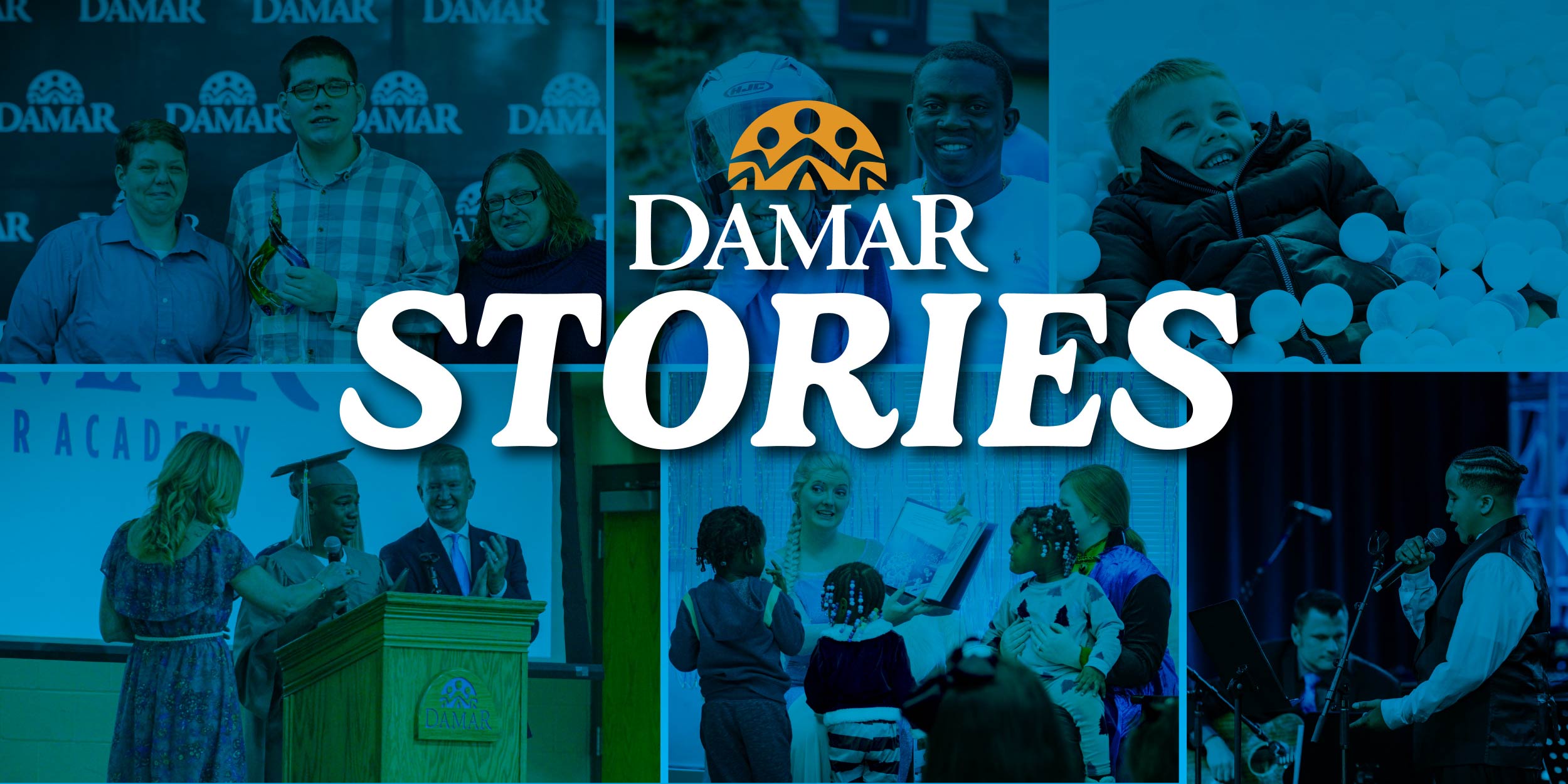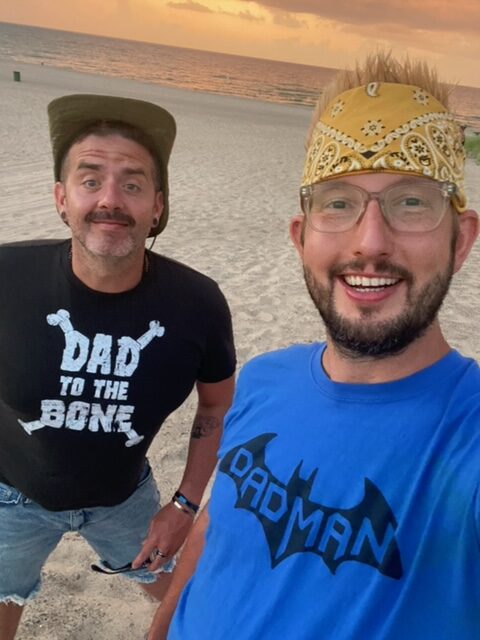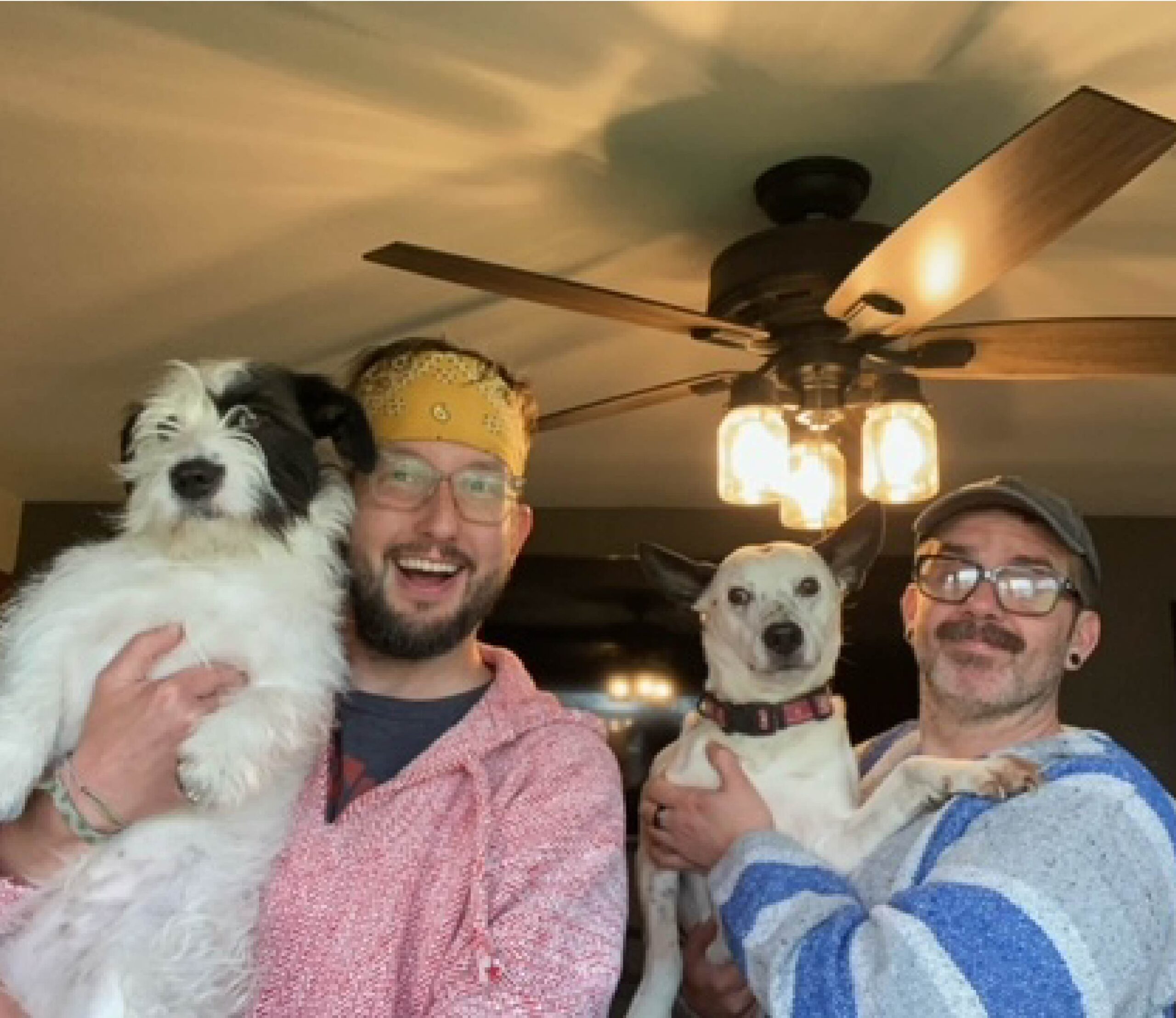
Growing through the Experience of Fostering
James Capps has advice for people who wonder if they’re foster parent material: Dive in and find out. Not only will you likely realize that you are foster parent material, but you’ll also grow as a result of the discovery process.
Capps and his partner, Ryan Mullins, had their own doubts when they entered the process. Young-at-heart educators who had decided they wanted a family, they joked, “There’s no way the state will put kids in our home because we’re not real adults.”
 This quip reveals something important that Capps—a school principal—and Mullins—associate artistic director at React youth theater program—embrace throughout the foster process: Foster parents should take their roles as foster parents seriously, but they should not take themselves too seriously. It’s a learning process, Capps said, and there will be missteps. You just have to learn to roll with them and move on.
This quip reveals something important that Capps—a school principal—and Mullins—associate artistic director at React youth theater program—embrace throughout the foster process: Foster parents should take their roles as foster parents seriously, but they should not take themselves too seriously. It’s a learning process, Capps said, and there will be missteps. You just have to learn to roll with them and move on.
Capps and Mullins gained this attitude through experience. Their original plan was to adopt rather than foster parent. It was after their first pre-adoption placement got sidetracked that they expanded their plan to include foster parenting. They were referred to Damar Foster Care Services, which they found to be a good fit for them, offering resources that other providers don’t—especially supports for children with disabilities or behavior challenges—and providing expertise and guidance that they found particularly valuable. Now licensed to foster and adopt, Mullins and Capps are fostering three teenagers, and they’re in the process of adopting one of them.
As with many foster kids, the three teens in Capps’ and Mullins’ home have faced challenges in past placements and home situations. Plus, two of the three are transgender youth, and the third is struggling with being isolated from friends he had at his old school. Two of the kids also have received services from Damar.
“Teenagers, even under the best circumstances, are tricky and emotional,” Capps said. “Coming at it with all of the things they’ve experienced, it was a lot.”
But those challenges are overshadowed by the benefits of fostering, he added, including the joy of building a family and the gratification of knowing you’re helping a teenager navigate difficulties and giving them a place to flourish and grow.
The support Capps and Mullins have received from Damar Foster Services has been especially helpful throughout this process, Capps said, especially the guidance they’ve gotten for bonding with the kids and developing stronger relationships within the family. Even Damar’s pre-fostering assessment proved to be a growth experience. “It’s not just an assessment,” Capps said. “I think it’s like a really great growth opportunity. It’s less a snapshot of who you are and more of a capacity-building experience.”
 The benefits of that process are part of what makes Capps believe people considering foster parenting should go for it. “I would say you’re probably more equipped for it than you think you are,” he said. “If you’re considering this, if you’re thinking about it seriously, then you probably are the right person.”
The benefits of that process are part of what makes Capps believe people considering foster parenting should go for it. “I would say you’re probably more equipped for it than you think you are,” he said. “If you’re considering this, if you’re thinking about it seriously, then you probably are the right person.”
That being said, he reiterated the importance of not taking yourself too seriously. “Enter into it with a good sense of humor, understanding that you’re going to have lots of really cool, uncomfortable conversations.”
For Mullins and Capps, that sense of humor was a must when they realized the farmhouse they bought in Perry Township isn’t particularly very well-suited to a family with teenagers. “We have a lot of space, but we learned that the set-up, the floorplan of a 100-year-old house is not necessarily ideal for the two of us and teenagers,” he said with a laugh.
Mullins and Capps also learned to accept that not every placement is going to be a perfect fit. The young man in their home needs to be closer to old friends, and, an only child, he’s having a hard time adjusting to a home with two other teens. So he’ll probably be moving to a new placement soon, and that’s OK.
“Every home is not going to be the best home for every kid. That’s doesn’t mean it’s not a great home, Capps said. “As long as you’re being supportive and helping the kids get what they need and providing a safe place, it’s a success.”